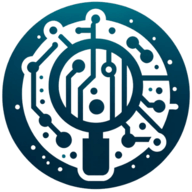In the ever-evolving world of technology, hiring the right talent is crucial. This blog post aims to guide you through effective interviewing techniques specifically designed for technical roles. We will delve into the importance of understanding the candidate's technical proficiency, problem-solving skills, and cultural fit. Let's embark on this journey to enhance your interviewing skills and ensure you hire the best talent for your technical roles.
Understanding the Role and Required Skills
The first step in conducting an effective interview for a technical role is understanding the job requirements and the skills needed. This understanding forms the foundation of the interview process. It allows you to ask relevant questions and assess the candidate's suitability for the role.
A detailed job description is an excellent starting point. It provides a clear picture of the role and the skills required. However, don't limit yourself to the job description. Engage with the team that the candidate will join. Understand the challenges they face and the skills they believe are necessary to overcome these challenges.
Once you have a clear understanding of the role and the required skills, you can prepare your interview questions. These questions should test the candidate's technical proficiency and their ability to apply their skills to solve real-world problems. Remember, the goal is not to trick the candidate but to understand their capabilities.
Assessing Technical Proficiency
Assessing a candidate's technical proficiency is a critical part of the interview process for technical roles. This assessment helps you determine whether the candidate has the necessary skills to perform the job.
Start by asking questions that test the candidate's understanding of fundamental concepts. This will give you an insight into their foundational knowledge. Then, move on to more complex questions that test their advanced skills.
Consider using technical tests or assignments to assess the candidate's skills. These tests should be relevant to the role and should mimic the tasks the candidate will perform on the job. This will give you a clear picture of the candidate's ability to perform the job.
Remember to provide feedback to the candidate after the test. This will help them understand their strengths and areas for improvement. It also shows that you value their time and effort.
Evaluating Problem-Solving Skills
In addition to technical proficiency, problem-solving skills are crucial in technical roles. These skills enable the candidate to apply their technical knowledge to solve real-world problems.
To assess the candidate's problem-solving skills, present them with a hypothetical scenario that they might encounter on the job. Ask them to explain how they would approach the problem and the steps they would take to solve it.
Pay attention to the candidate's thought process. Are they systematic in their approach? Do they consider multiple solutions before deciding on the best one? These are indicators of strong problem-solving skills.
Remember, the goal is not to find a candidate who can solve every problem. Instead, look for a candidate who demonstrates a logical approach to problem-solving and is not afraid to ask for help when needed.
Checking Cultural Fit
Cultural fit is an often overlooked aspect of the interview process for technical roles. However, it is just as important as technical proficiency and problem-solving skills. A candidate who fits well with your company culture will be more likely to succeed in their role.
To assess cultural fit, ask questions that reveal the candidate's values and work style. These should align with your company's values and the way your team works.
Also, consider how the candidate interacts with you during the interview. Are they respectful and professional? Do they show enthusiasm for the role and the company? These are positive signs of a good cultural fit.
Remember, cultural fit is a two-way street. The candidate should also feel that your company is a good fit for them. Be honest and transparent about your company culture to help the candidate make an informed decision.
Making the Decision
After conducting the interview and assessing the candidate's skills, it's time to make a decision. This decision should be based on the candidate's technical proficiency, problem-solving skills, and cultural fit.
Involve your team in the decision-making process. They can provide valuable insights that you might have missed. Also, they will be working closely with the new hire, so their input is crucial.
Once you have made a decision, communicate it to the candidate promptly. Whether the decision is positive or negative, the candidate deserves to know. If the decision is negative, provide constructive feedback to help the candidate improve.
Remember, hiring is not an exact science. You might not find the perfect candidate every time. However, by following these effective interviewing techniques, you can increase your chances of hiring the right talent for your technical roles.
Continuous Improvement
The process of interviewing for technical roles is a continuous learning experience. Each interview provides an opportunity to refine your interviewing techniques and improve your hiring process.
After each interview, take some time to reflect on the process. What went well? What could you improve? Use this feedback to enhance your interviewing techniques.
Also, consider seeking feedback from the candidates. Their perspective can provide valuable insights into your interviewing process. This feedback can help you make the process more effective and enjoyable for both you and the candidates.
Remember, the goal of interviewing is not just to fill a role. It's also an opportunity to learn and grow. By continuously improving your interviewing techniques, you can ensure that you hire the best talent for your technical roles.
Wrapping Up: Mastering Your Interviewing Techniques
Interviewing for technical roles can be a challenging task. However, by understanding the role and required skills, assessing technical proficiency, evaluating problem-solving skills, checking cultural fit, making informed decisions, and continuously improving your techniques, you can master the art of interviewing. These effective techniques will not only enhance your interviewing skills but also ensure you hire the best talent for your technical roles. Let's embrace these techniques and make the most of our hiring process.

